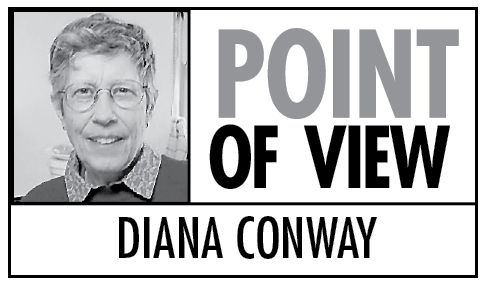In his Jan. 9 Point of View article part-time resident Joe Balyeat wrote that Alaskans should amend Article 7 of the State Constitution in order to eliminate the sentence “No money shall be paid from public funds for the direct benefit of any religious or other private educational institution.”
Balyeat claimed that healthy competition among public and private schools would improve educational services to children. He blames “powerful government unions” and “educratic (sic) special interests” for the poor showing in some Alaska school districts.
How well a school performs depends on many factors including good administrators, trained teachers and economic and social conditions in the area served. Free public schools are one of America’s greatest creations. Even the best public school can’t solve all of the nation’s social problems, of course, or succeed with every child. Good schools work with parents as well as children because community commitment is vital to the success of a local school.
To this end, our Alaska statutes provide for a wonderful variety of options for parents. The competition among educational opportunities that Balyeat claims to want is already available under AS 14.30.010. Children are required to attend school between the ages of seven and sixteen, but parents may provide that education through a public school, a secular or religious private school, or a private certified teacher.
Parents can enroll their children in a correspondence school or even act as teachers themselves in their own home.
Private school students, whether secular or religious, are allowed to attend free public school part-time if parents so desire. So are home-schooled and correspondence school students.
Alaska allows groups of parents to form their own charter schools, exempt from the local district’s textbook, program, curriculum and scheduling requirements, though subject to secondary school competency testing (AS 14.03.250).
Local school districts across the state offer bilingual/bicultural programs as diverse as Alaska Native languages, Japanese, Spanish and Russian. There are extensive provisions for physically and mentally challenged students, including special programs, aides and sign language interpreters. School schedules can be adjusted to the needs of a local community.
With all this competition already existing in Alaska education, it seems as if the real purpose of Balyeat’s point of view article is, in fact, to obtain public funds for religious schools. A fight is being waged across the United States to eliminate from state constitutions the so-called Blaine Amendments which prohibit spending state money on religious schools. Alaska is just one of 38 states with such restrictions.
Balyeat states that such restrictions have been deemed unconstitutional in federal courts. This is untrue. Court cases have dealt only with specific applications of state constitutional prohibitions on giving money to religious schools. Issues raised have included loans of equipment and material to private schools, reimbursements to parents for transportation spent sending children to private schools, direct payment to parents vs. subsidies to private schools and the especially thorny issue of school vouchers.
Legal decisions have been many and varied depending on the particular court and justices. But underlying most of them is debate over interpretation of the “Establishment Clause” of the First Amendment to the U. S. Constitution. What may federal, state and local governments do in favor of religion in a secular nation such as ours?
Balyeat would have us believe that restrictions on state money for religious schools are rooted in religious bigotry because they came into being in a period of anti-Catholic, anti-Irish sentiment. In reality, federal separation of church and state goes back to the very beginning of our nation.
Finally, Balyeat argues that refusal to give state money to private schools falls into the category of “anti-religious prohibitions.” Article 1 of Alaska’s Constitution specifically defends the free exercise of religion. However, “free exercise” doesn’t mean financial support by the state. Alaska statutes offer parents the right to choose a religious school for their children in preference to a free public secular education, but the state does not subsidize such a choice.
Public money should not be spent for sectarian purposes. There’s only so much government money to go around in Alaska, as can be seen during each year’s budget debate. Taking money from public school districts for private schools will not improve education in this state.
Diana Conway is a retired college professor and published author of children’s fiction. Her two sons were raised in Anchorage and graduated from public alternative schools. She lives across Kachemak Bay in Halibut Cove, where several of her neighbors have homeschooled their children.


